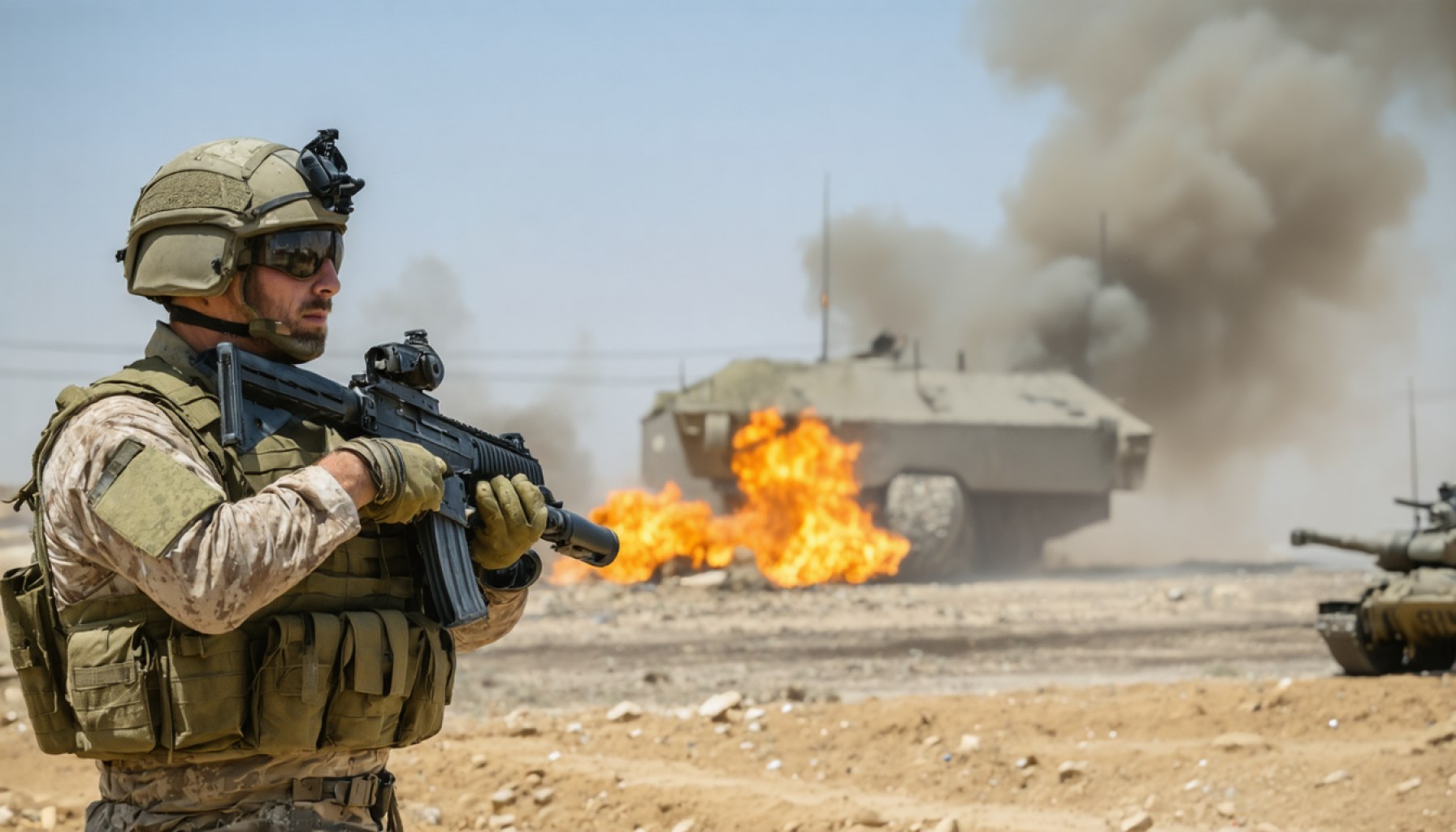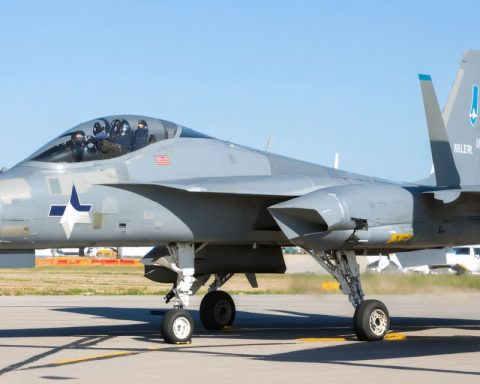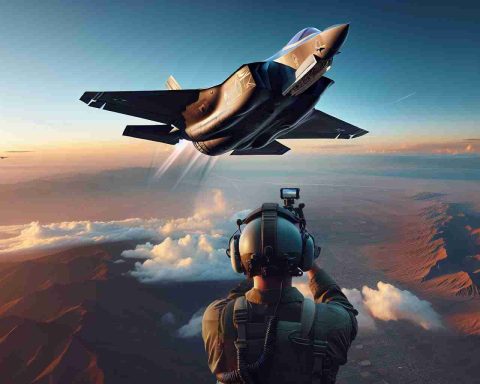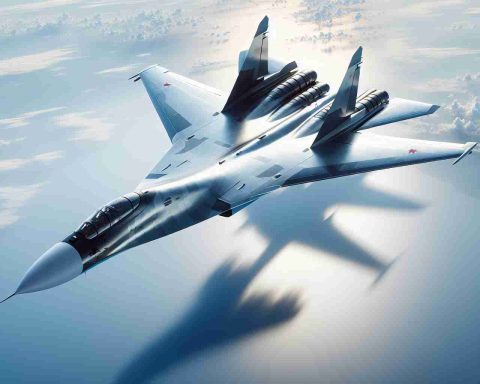- A sudden evacuation warning in Beirut’s southern suburbs followed an Israeli airstrike targeting Hezbollah’s assets, igniting regional tensions.
- The attack came after rockets were fired from Lebanon towards Israel, threatening the fragile ceasefire with Hezbollah.
- Israeli authorities claim the target was a storage site for Hezbollah UAVs; Lebanon’s Prime Minister called for identifying those responsible for the rocket fire.
- International reactions included condemnation from French President Macron, calling the airstrike a breach of the ceasefire.
- Violence in southern Lebanon resulted in civilian casualties, raising fears of further escalation in an already vulnerable region.
- The tension underscores Hezbollah’s dual role as a political and militant entity and its ties to Hamas complicating peace efforts.
- The prospect of renewed conflict threatens Lebanon’s stability, with urgent calls for restraint from the international community.
https://youtube.com/watch?v=4LQdaGWVJGw
A sudden roar of tension disrupted the morning calm in Beirut as residents of the southern suburbs received an ominous warning: evacuate immediately. The Israeli military, acting with relentless precision, targeted a site believed to house Hezbollah’s aerial assets, reigniting fears of conflict in a region exhausted by war. As the echoes of the airstrike faded, Beirut’s streets teemed with chaos. Parents scrambled to collect their children from schools abruptly closed, while traffic stalled in a panicked exodus.
The strike followed rocket fire launched towards Israel from Lebanon, as the delicate truce with Hezbollah showed alarming signs of unraveling. This was the second such incident since the November ceasefire, with Hezbollah swiftly distancing itself from any involvement.
The Israeli Defense Minister issued a stark declaration after the newest wave of hostilities: tranquility in the Galilee would come at the price of peace in Beirut. The attack targeted what Israel alleged to be a storage site for UAVs used by Hezbollah—a chilling echo of last year’s intense conflicts that scarred both nations.
Lebanese leadership quickly condemned the disruption. Prime Minister Nawaf Salam called for decisive action to unveil the culprits behind the rocket fire, emphasizing the peril it posed to Lebanon’s fragile stability. Meanwhile, international voices, including French President Emmanuel Macron, lambasted the Israeli airstrike as a breach of the tenuous ceasefire. Macron and France play a key role in maintaining peace efforts in the region.
In Lebanon’s south, sporadic violence continued with tragic consequences. Strikes claimed lives and injuring civilians, including children. Communities near the border, already weary from past battles, braced themselves for further escalation. UN envoys amplified their appeals for restraint, warning that a return to uncontrollable conflict could devastate civilians caught in the crossfire.
The broader context of these renewed tensions lies within Hezbollah’s position as both a political power and militant force in Lebanon. The group’s supportive stance towards its ally Hamas has historically led to its involvement in cross-border hostilities, complicating peace-building efforts.
As darkness falls over Beirut, uncertainty lingers. The fragile peace brokered last November seems increasingly fragile—each spark of violence risks igniting a larger conflagration. The future hangs in a precarious balance, with voices from international communities echoing the call for calm. In the end, the overarching hope remains: a return to peace, woven delicately through dialogue and diplomacy, before irreversible damage is wrought.
The world watches closely, breath held, wondering if deliberation and diplomacy can overcome this cycle of violence. Can a society scarred by perpetual war finally find a steady path towards enduring peace? The answer remains uncertain, but the pursuit of it is imperative.
Tensions Flare: Crisis in Beirut and the Risks of Renewed Conflict
The recent escalation in Beirut has raised global concerns as regional tensions threaten to spill over into a larger conflict. Below, we explore various dimensions of this complex situation, providing detailed insights and potential ways forward.
How-To Steps & Life Hacks: Staying Safe During Crisis
1. Stay Informed: Use reliable sources like national news and international agencies to get updates.
2. Have an Evacuation Plan: Know your nearest shelter and evacuation routes.
3. Emergency Pack Preparedness: Keep essentials like water, food, medicine, and documents ready for quick access.
4. Communication Strategy: Use text messages and social media for updates if the phone network is congested.
5. Keep Calm and Think Ahead: Panic can cloud judgment; stay as calm as possible to make sound decisions.
Real-World Use Cases: Impact on Daily Life and International Relations
– Daily Life in Beirut: Ordinary activities are disrupted as residents deal with constant uncertainty, affecting commerce, education, and general routines.
– International Relations: The conflict affects international diplomatic relations, with countries like France actively engaging in peace talks.
Market Forecasts & Industry Trends: Economic Impact
– Lebanon’s Economy: The ongoing instability could further weaken Lebanon’s already fragile economy, impacting sectors such as tourism, banking, and imports.
– Global Markets: Energy prices might fluctuate due to the uncertainty in the Middle East, affecting global markets.
Reviews & Comparisons: International Reactions
– Responses: Varying reactions from nations highlight differing geopolitical priorities, with some countries condemning military actions while others support defensive measures.
Features, Specs & Pricing: Israel’s Military Technology
– IDF Capabilities: Israel’s military uses advanced technologies such as UAVs and precision-guided munitions, critical in strategic operations.
– Cost of Conflict: Sustained military engagement is enormously costly, affecting national budgets and prioritizing defense over social programs.
Security & Sustainability: Path to Stability
– Peacekeeping Initiatives: Initiatives by the UN and other international bodies aim to sustain dialogue and avoid further escalation.
– Sustainable Peace Efforts: Long-term peace in the region will require sustainable dialogues tackling the root causes of conflict.
Insights & Predictions: Future Developments
– Bilateral Talks: Regular diplomatic engagements between Lebanon and Israel could prevent sporadic violence.
– International Involvement: Increased international presence might help mediate tensions effectively.
Pros & Cons Overview: Current Scenario
Pros:
– International Attention: Global focus can lead to more robust peace efforts.
– Technological Precision: Modern military tech aims to minimize civilian casualties.
Cons:
– Civilian Harm: Any escalation risks further civilian suffering and displacement.
– Economic Strain: Continuous conflict exacerbates Lebanon’s financial crisis.
Actionable Recommendations
– Engage in Diplomatic Processes: Support and amplify diplomatic dialogue led by international peacekeepers.
– Community Support Initiatives: Aid programs focusing on those affected by the conflict can ameliorate immediate humanitarian needs.
– Monitor Developments: Stay engaged with reputable sources such as BBC for updates.
In conclusion, while the situation remains precarious, a commitment to dialogue, patience, and international assistance is crucial to ushering in a lasting peace.











